After the intense college entrance exams, Chinese students are entering the major selection stage, with most gravitating towards new technical fields such as AI, robotics, and data science. This trend reflects Beijing's shift in education strategy, placing technology at the center of global competitiveness and economic growth.
Knowing the results of the university entrance exam, He Junjie, 18 years old, living in Zhejiang province, China, considered choosing suitable majors in terms of scores, interests and most importantly, market demand. He and many of his classmates are leaning towards emerging technical majors such as AI, robotics, data science instead of traditional majors such as economics, finance...
Two decades ago, when China first joined the World Trade Organization (WTO), international trade and urban planning were popular majors. Now, amid growing technological competition with the US, there is a shift toward technical fields such as artificial intelligence, automotive engineering, data science and robotics.
According to Mr. Chu Zhaohui, senior researcher at the National Academy of Education Sciences of China, “new technology” is becoming a popular choice because it offers good job prospects, not only in terms of the number of opportunities but also because of the strong investment from the government.
The concept of “new technology” was introduced by China’s Ministry of Education in 2017, and includes interdisciplinary fields such as AI, bioengineering, smart manufacturing and robotics. These are considered key areas in Beijing’s industrial modernization strategy. As of March 2025, more than 20,000 new university programs had been approved by China’s Ministry of Education within a decade, with the majority being in engineering.
Prestigious universities have also drastically adjusted their training strategies. Fudan University, which is famous for its humanities, has reduced its enrollment rate for this group of majors from more than 30% to 20%, while increasing the technical quota to nearly 30% of the total enrollment in 2024.
The reason is the strategic direction from the state. With the goal of developing high-tech industry, Beijing is trying to promote innovation-based growth instead of the previous growth model based on real estate and exports.
The trend of choosing engineering in China is in sharp contrast to the US. According to data from 2022, about 36% of Chinese university students are studying engineering, compared to only 5% in the US, while business (19%), health professions and social sciences still hold the top positions.
However, that does not mean that the US is weak in technological innovation. Researcher Chu argues that the flexible and individual-oriented education model in the US allows students to develop according to their passions, which in turn leads to higher creative and social efficiency.
He Junjie and his peers represent a new generation of Chinese students. They are dynamic, practical and willing to choose their majors according to national strategies. However, they also face a difficult choice: should they pursue what they truly love or choose the “safe” path based on the market?
Researcher Chu warns that choosing a major based too much on market trends can lead to long-term consequences. Without passion and self-understanding, many students can only take on low-level job positions after graduation. This reality raises questions about the long-term effectiveness of training if it only relies on short-term labor market needs.
Source: https://giaoducthoidai.vn/sinh-vien-trung-quoc-dich-chuyen-sang-nganh-cong-nghe-post739765.html





![[Photo] Nhan Dan Newspaper launches “Fatherland in the Heart: The Concert Film”](https://vphoto.vietnam.vn/thumb/1200x675/vietnam/resource/IMAGE/2025/10/16/1760622132545_thiet-ke-chua-co-ten-36-png.webp)








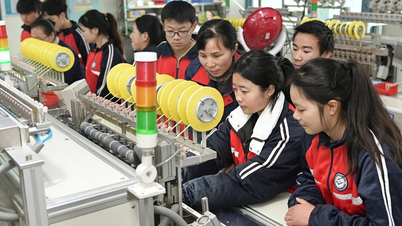
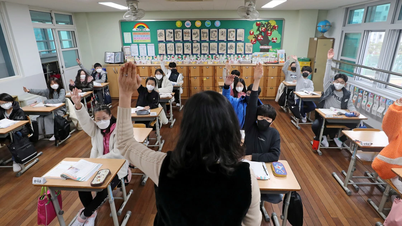
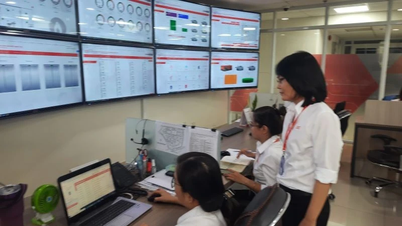

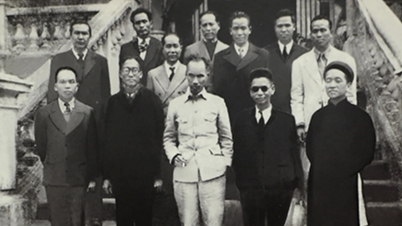












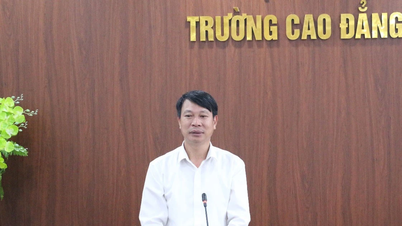


![[Photo] General Secretary To Lam attends the 18th Hanoi Party Congress, term 2025-2030](https://vphoto.vietnam.vn/thumb/1200x675/vietnam/resource/IMAGE/2025/10/16/1760581023342_cover-0367-jpg.webp)










































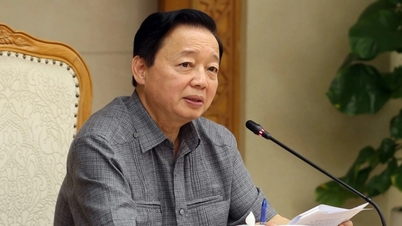



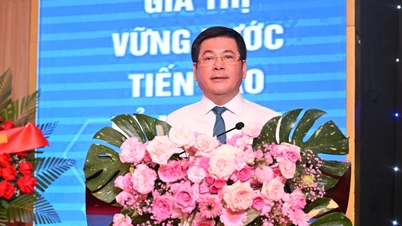





























Comment (0)